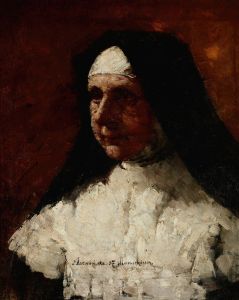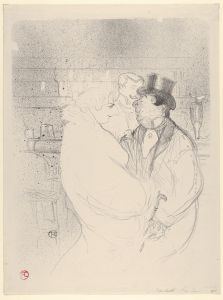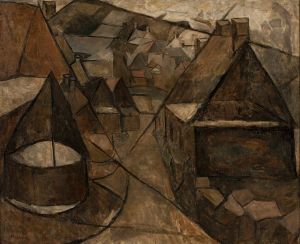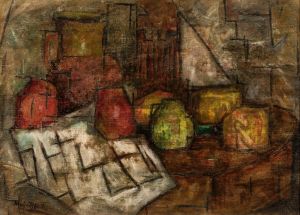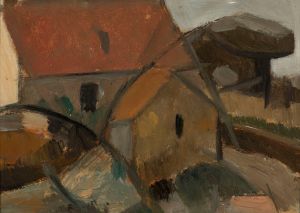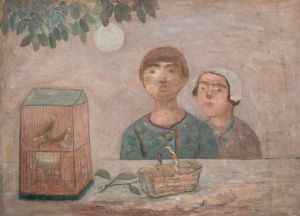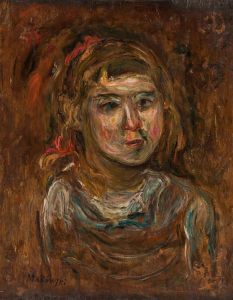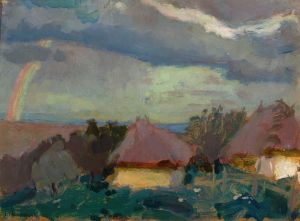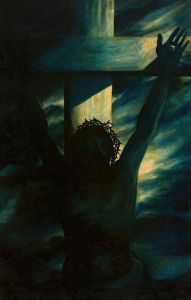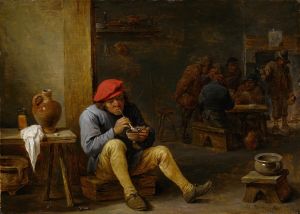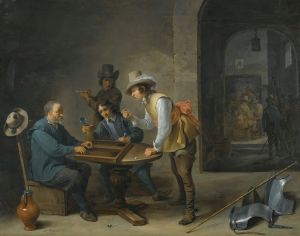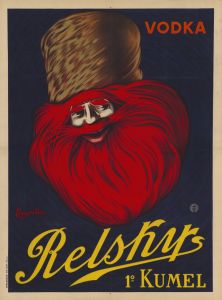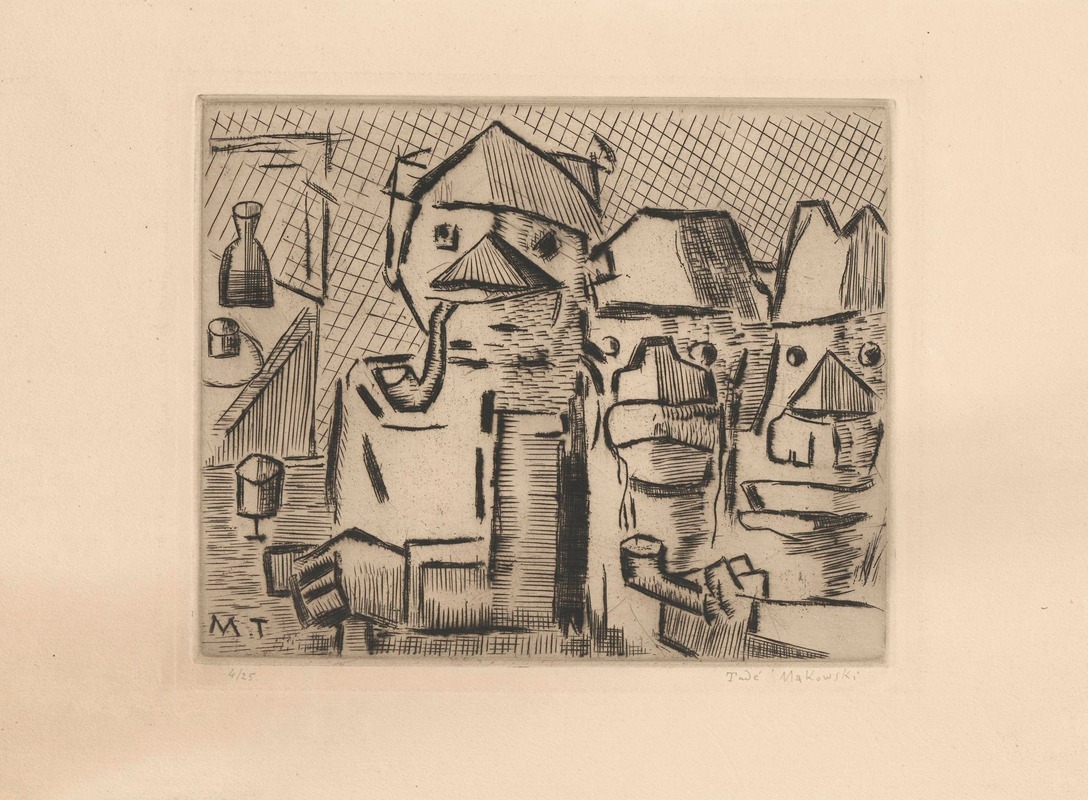
Drinkers
A hand-painted replica of Tadeusz Makowski’s masterpiece Drinkers, meticulously crafted by professional artists to capture the true essence of the original. Each piece is created with museum-quality canvas and rare mineral pigments, carefully painted by experienced artists with delicate brushstrokes and rich, layered colors to perfectly recreate the texture of the original artwork. Unlike machine-printed reproductions, this hand-painted version brings the painting to life, infused with the artist’s emotions and skill in every stroke. Whether for personal collection or home decoration, it instantly elevates the artistic atmosphere of any space.
Tadeusz Makowski was a Polish painter known for his unique style that combined elements of folk art, symbolism, and modernism. Born on January 29, 1882, in Oświęcim, Poland, Makowski initially studied classical philology at the Jagiellonian University in Kraków before turning to art. He later attended the Academy of Fine Arts in Kraków, where he studied under Józef Mehoffer and Jan Stanisławski. In 1908, Makowski moved to Paris, where he became part of the vibrant artistic community and was influenced by the works of artists like Paul Cézanne and the Cubists.
Makowski's painting "Drinkers" is one of his notable works, though specific details about the painting, such as its creation date or current location, are not widely documented. The painting reflects Makowski's characteristic style, which often includes simplified forms and a focus on the human figure. His works frequently depict scenes of everyday life, infused with a sense of whimsy and introspection.
"Drinkers" likely showcases Makowski's interest in capturing the essence of human interaction and the subtleties of social gatherings. His style often involved a muted color palette and a focus on the emotional and psychological aspects of his subjects. Makowski's paintings are known for their narrative quality, often telling a story or capturing a moment in time with a sense of intimacy and immediacy.
Throughout his career, Makowski's work was characterized by a blend of influences. While he was initially influenced by the Impressionists and Post-Impressionists, his style evolved to incorporate elements of Cubism and folk art. This evolution is evident in the way he structured his compositions and his use of geometric forms to simplify and abstract the human figure.
Makowski spent most of his life in France, where he continued to develop his artistic style until his death on November 1, 1932, in Paris. Despite living abroad, his work remained deeply connected to Polish culture and traditions, often reflecting themes and motifs from his homeland.
Although "Drinkers" is not as widely recognized as some of his other works, it contributes to the understanding of Makowski's artistic legacy. His paintings are celebrated for their ability to convey complex emotions and narratives through deceptively simple forms. Makowski's work continues to be studied and appreciated for its unique contribution to early 20th-century art, bridging the gap between traditional and modernist approaches.
In summary, Tadeusz Makowski's "Drinkers" exemplifies his distinctive style and thematic focus. While specific details about the painting are limited, it remains an important part of his oeuvre, reflecting his ability to capture the nuances of human experience through art.





